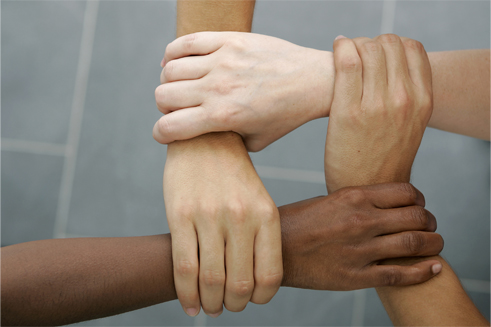
Scripture:
1 Maccabees 6:1-13
Luke 20:27-40
Reflection:
Throughout my ministry, I have to confess that I haven’t really preached on either 1 or 2 Maccabees. These books are indeed filled with feats of heroism and victories on the battlefield against oppression, but I never warmed up to the readings. In today’s first reading from 1 Maccabees, however, I found something that spoke to me about what is going on in the U.S. and around the world.
In that first reading, King Antiochus IV, a Seleucid king, is defeated in his campaigns against the Israelites who rebelled against his rule. He had persecuted the Jews and tried by means of torture to get them to forsake their faith. In his defeat, Antiochus declines in health and knows that he is near death. The author of Maccabees writes: “So he called in all his Friends and said to them: ‘Sleep has departed from my eyes, for my heart is sinking with anxiety. I said to myself: ‘Into what tribulation I have come, and in what floods of sorrow am I now. Yet I was kindly and beloved in my rule.’ But I now recall the evils I did in Jerusalem …, and for no cause gave orders that the inhabitants of Judah be destroyed. I know that this is why these evils have overtaken me; and now I am dying, in bitter grief, in a foreign land.’”
I’m not sure how “kindly and beloved” Antiochus IV really was, but it wouldn’t be the first time in history that an otherwise solid leader had some fierce antipathy towards a particular group. One person that comes to mind is Woodrow Wilson, the President of the U.S. during WWI. After that war, he had come up with a blueprint for peace that called for the self-determination of peoples. Although his plan never came to complete fruition, due at least in some part, to the thirst for vengeance among the victors, the dismantling of some empires did give many peoples in Europe their first taste of self-determination.
But in the U.S., Wilson is pretty much seen as a racist. The champion of self-determination of peoples could not envision that same self-determination for African-Americans.
How we relate, not only to those who are like us, but also to those who are “other,” may be one of the criteria by which we are judged. In our Gospel reading, at the end of His debate with the Sadducees, who didn’t believe in resurrection, Jesus says “…he is not God of the dead, but of the living, for to him all are alive.” I believe that we can safely say that to God, all are also precious, even those we may consider enemies.
May God grant us the grace to extend love to all, not just some.
Fr. Phil Paxton, C.P., is the local superior of the Passionist Community in Birmingham, Alabama.
